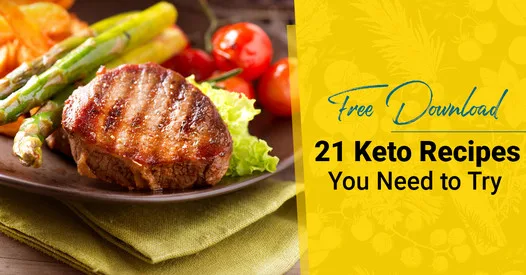Cracking the nutrition code can be quite tricky, especially when you’re trying to balance weight loss and muscle preservation. You may have found yourself in the middle of the great diet debate: high protein versus Keto. This article is set to take you on a journey through these two popular diets, revealing the pros and cons of each, and ultimately addressing the burning question – which is better when it comes to maintaining your hard-earned muscle mass? Seating you in the driver’s seat, it enables you to decide which regime fits your lifestyle and muscle preservation goals more appropriately, thereby simplifying the diet selection process.
Understanding the Basics of High Protein Diet
Definition of high protein diet
a high protein diet is one that emphasizes the consumption of protein-rich foods. This means a higher proportion of your daily caloric intake – typically 20% or more – comes from protein sources. Common sources include lean meats, fish, eggs, dairy products, legumes, and nuts.
Effects on muscle preservation
A high protein diet is often used for muscle preservation, particularly for athletes or those trying to build muscle mass. This is because protein is critical for the growth, maintenance, and repair of muscle tissues. Having an abundant supply of protein means your body does not need to break down existing muscle to meet its protein needs.
Pros and cons of high protein diet
Naturally, there are both advantages and disadvantages to a high protein diet. On the plus side, a high protein diet can aid in weight loss by reducing hunger and boosting metabolism. It can also support muscle gain when combined with resistance training. On the downside, consuming excessive protein can strain the kidneys over time. It can also lead to nutrient imbalances if one does not eat a variety of foods. Protein-rich foods can also be high in saturated fats leading to increased cholesterol levels, which can increase the risk of heart disease.
Understanding the Basics of Keto Diet
Definition of keto diet
The ketogenic, or keto, diet primarily consists of high-fat foods and an extremely limited number of carbohydrates. Typically, about 70-75% of your daily calories come from fats, 20-25% from protein, and only 5-10% from carbohydrates. This macronutrient balance shifts your body into a state of ketosis, whereby it burns fat for energy instead of glucose.
Effects on muscle preservation
One of the biggest concerns about the keto diet and muscle preservation is the drastically reduced protein intake compared to high protein diets. While it’s true that a lower protein intake can potentially lead to some muscle loss, this is typically compensated by the keto diet’s ability to tap into fat stores for energy, sparing muscle.
Pros and cons of keto diet
One of the major benefits of the ketogenic diet is its effectiveness for weight loss. By drastically reducing your carb intake, your body becomes a fat-burning machine. However, this diet isn’t for everyone. It may cause side effects like the “keto flu” characterized by nausea, fatigue, and headaches. Long term safety of the diet also remains uncertain.

High Protein for Muscle Gain and Fat Loss
Relation of high protein intake to muscle gain
The consumption of high protein foods can contribute significantly to muscle gain, especially if you’re engaged in strength training activities. The amino acids in protein serve as the building blocks for muscle, so incorporating more protein into your diet can help you build and repair muscle faster.
Effect of high protein intake on fat loss
High protein diets can also help in fat loss. Consuming protein can rev up your metabolism, enabling you to burn more calories naturally. At the same time, protein is more satiating than carbs or fats, which can help reduce overall caloric intake.
Optimum protein intake per day
The optimum amount of protein to aim for can vary depending on a number of factors like age, sex, and activity level. However, as a general rule, you should aim for a minimum of 0.8 grams of protein per kilogram of body weight.
Keto for Muscle Gain and Fat Loss
Keto’s impact on muscle gain
While the keto diet is low in protein compared to a traditional high-protein diet, it doesn’t mean you can’t build muscle on a keto regime. When your body enters ketosis, it becomes more efficient at preserving protein, which can actually help protect and build your muscles.
How keto helps in fat loss
The ketogenic diet is renowned for its ability to drive rapid fat loss. By severely restricting carbohydrates, your body is forced to burn fats for energy due to a lack of glucose. This metabolic state, known as ketosis, is a powerful fat-burning mode.
Ideal fat and protein intake in keto diet
In the keto diet, you want to aim for approximately 70 to 75% of your daily calories from fats, 20-25% from protein, and 5-10% from carbs.

Scientific Studies Supporting High Protein Diet for Muscle Preservation
Review of studies showcasing benefits of high protein diet
There’s a substantial body of research supporting the effectiveness of a high protein diet for muscle preservation. For instance, a 2018 review of studies published found that higher protein diets could improve muscle mass and performance.
High protein’s impact on muscle synthesis
Protein is essential for muscle synthesis, or the creation of new muscle tissue. Consuming sufficient protein provides your body with the necessary amino acids it needs to repair and build new muscle fibers, particularly after resistance training.
Legitimacy and criticisms of these studies
While many studies extol the virtues of a high protein diet for muscle growth, there’s also criticism. Some question the need for excessive protein intake, cautioning against the potential risks to kidney health over time. More research is needed to conclusively determine the ideal protein range for optimal health and muscle growth.
Scientific Studies Supporting Keto Diet for Muscle Preservation
Review of studies showcasing benefits of keto diet
While there’s substantial research supporting the keto diet’s effectiveness for weight loss and blood sugar control, fewer studies specifically look at muscle preservation. However, a 2010 study on resistance-trained men following a keto diet found they lost fat mass but maintained muscle mass.
Keto diet’s impact on muscle synthesis
While the keto diet doesn’t provide as much protein as a high protein diet, research has shown that it can still maintain muscle mass. This is believed to occur because ketosis can induce a muscle-sparing effect, allowing your body to hold onto its muscle mass while still losing fat.
Legitimacy and criticisms of these studies
Like with high protein diets, studies on the ketogenic diet also face criticisms. Concerns include the diet’s long-term safety profile and lack of variety, which may lead to nutrient deficiencies. More comprehensive research is needed to understand the keto diet’s full impact on muscle preservation.
Managing Side Effects: High Protein vs Keto
Potential side effects of high protein diet
Potential side effects of a high protein diet can include nutrient deficiencies due to limited consumption of fruits and vegetables. There’s also the potential for kidney damage with excessive protein consumption, especially in those with pre-existing kidney conditions.
Potential side effects of keto diet
The ketogenic diet can also produce side effects, collectively referred to as the “keto flu.” This includes symptoms like fatigue, nausea, headaches and constipation. There can also be a risk of nutrient deficiencies due to the restricted intake of fruits, vegetables, and whole grains.
Prevention and management of side effects
To manage or prevent these side effects, it’s essential to ensure a balanced, varied diet, rich in nutrient-dense foods. Regular monitoring of health status and seeking professional advice is also recommended.
What Fitness and Nutrition Experts Say: High Protein vs Keto
Fitness experts’ view on high protein diet
Many fitness experts advocate high protein diets, particularly for muscle building and athletic performance. They argue that protein’s contribution to muscle repair and growth is vital for these goals.
Nutritionists’ view on keto diet
Nutritionists often have mixed views on the ketogenic diet. Some praise its fast weight-loss effects and potential benefits for certain health conditions, while others warn about long-term sustainability and potential nutrient deficiencies.
Comparison of expert opinion on high protein and keto
Both diet strategies have their advocates and detractors in the fitness and nutrition world. Though high protein diets are widely accepted for muscle building, some argue that their potential health risks aren’t worth it. Keto, while celebrated for its weight loss effectiveness, also raises concerns about long-term health effects.
Personalizing Your Diet: High Protein or Keto?
Factors in choosing the right diet
The choice between a high protein diet or a keto diet should be based on a range of factors such as your specific health goals, dietary preferences, physical activity levels, and existing health conditions.
Considerations for personalizing your high protein or keto diet
When personalizing your diet, consider your lifestyle, taste preferences, and health objectives. Those who regularly exercise or do strength training may opt for a higher protein intake, while those who wish to lose weight quickly may try the keto approach.
Impact of individual lifestyle and health conditions
Your individual lifestyle and present health conditions should significantly influence your diet choice. For instance, a high protein diet might not be ideal for someone with kidney illness, while a keto diet might not be the best choice for individuals lacking gallbladder.
Conclusion: Which Preserves Muscle Better?
Summarizing the impact of high protein and keto on muscle preservation
Both high protein and keto diets have been shown to support muscle preservation in different ways. High protein diets deliver ample protein for muscle synthesis, while the keto diet is theorized to have muscle-sparing effects when the body is in ketosis.
Arguments in favor of high protein
Arguments for high protein diet focus on its direct supply of protein, the primary nutrient required for muscle growth and repair. Additionally, it doesn’t restrict carb consumption as severely as keto, allowing for a more varied dietary pattern.
Arguments in favor of keto
Arguments for keto centre around its fat-burning capabilities, thereby potentially preserving muscle mass since fat stores, not muscle, are used for energy. It may also help maintain muscle mass even with a lower protein intake due to its muscle-sparing effect in ketosis.
The verdict: High protein vs Keto
Ultimately, both a high protein diet and the ketogenic diet can fit into a healthy lifestyle when applied mindfully and in balance with other nutritional needs. Always consult a healthcare or nutrition professional before starting a new diet, particularly if you have any existing health conditions or concerns.

